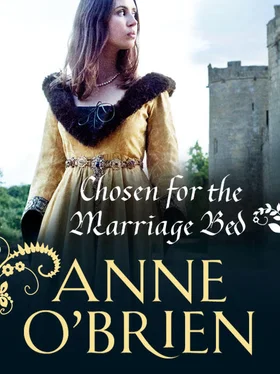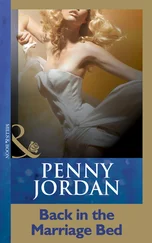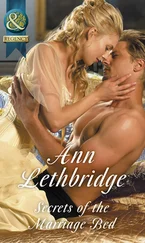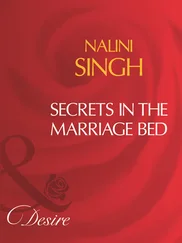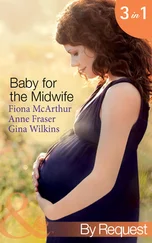‘Was I…?’ Elizabeth swallowed. ‘What you hoped for?’ she finished, in an agonised rush. Was I an unspeakable disaster compared with your incomparable first wife? She stared into the darkness, waiting.
‘Elizabeth Malinder.’ There was no condemnation here, only lazy humour in the use of her new name. ‘Have you so little courage? I did not think you a coward.’
Was he laughing at her? ‘I am no coward! I did not dislike it!’ Elizabeth clutched the linen covers to her neck in sudden defence.
‘Thank God! An honest woman!’ Richard stretched out to push aside her hasty covering and draw one long, smooth caress from shoulder to wrist, finally capturing her hand and raising her palm to his mouth as he had once before. ‘It will improve, lady. Now, come here.’
He pulled her close again, holding firm when she would have struggled for her freedom. It was no contest. Elizabeth found herself pinned against that toned body she had so admired. And Richard felt all the tension drain from her, felt her smile against his chest.
Anne O’Brienwas born and has lived for most of her life in Yorkshire. There she taught history, before deciding to fulfil a lifetime ambition to write romantic historical fiction. She won a number of short story competitions until published for the first time by Mills & Boon. As well as writing, she finds time to enjoy gardening, cooking and watercolour painting. She now lives with her husband in an eighteenth-century cottage in the depths of the Welsh Marches.
You can find out all about Anne’s books and more at her website: www.anneobrien.co.uk
Recent novels by the same author
THE DISGRACED MARCHIONESS*
THE OUTRAGEOUS DEBUTANTE* THE ENIGMATIC RAKE* CONQUERING KNIGHT, CAPTIVE LADY
* The Faringdon Scandals
Author Note
My heroine, Elizabeth de Lacy, was born out of the dramatic tale of Ellen Gethin, wife to Thomas Vaughan, Lord of Hergest in the Welsh Marches. The story tells that Ellen’s brother David was murdered by her cousin. In a desire for revenge, at an archery contest Ellen took up a bow and arrow, aimed at her villainous cousin, and slew him. Whether she had to answer for her crime before the law is not told, but she earned the title Terrible Ellen.
It is a true romance of a headstrong, spirited lady, and I was determined to write about her. Ellen can be seen today, a carved figure on a magnificent alabaster tomb in Kington Church in Herefordshire, where she lies beside her husband. She has a calm serenity in her face that I imagine she did not have in life.
So I wrote my romance of the Wars of the Roses. Ellen became Elizabeth de Lacy, the Black Vixen, who of course needed a husband as purposeful and driven as she. Richard Malinder had the measure of his wilful bride, even though he had to come to terms with her pride and her unsettling knowledge of witchcraft. Thrust into a marriage neither of them sought, I knew it would prove to be a difficult journey for them— yet their love was to prove stronger than fear and suspicion, bloodshed and grief, the viciousness of civil war and cold-blooded murder.
I like to think that the spirits of Elizabeth and Richard still linger in Herefordshire today. I hope you enjoy their romance.
CHOSEN FOR THE MARRIAGE BED
Anne O’Brien
www.millsandboon.co.uk
To George, as ever, with love.
Chapter One
The Welsh March—1460
In Llanwardine Priory in the Welsh March the little room had stone walls, a stone-flagged floor and a ribbed roof. Damp cold clung to every surface, a nasty gleam in the light from the single lantern. It had the air of being long unused, except for now at the dark of the night. Two women and a cat shivered from the chill and lively apprehension. The door was barred, windows close shuttered against any who might show an interest in their activities.
The women sat facing each other across a rough plank trestle, the cat curled to one side. Both figures were dark cloaked. One, the elder, was Mistress Jane Bringsty, round of face with ample girth and the plain garments of a serving woman; the other was Elizabeth de Lacy, daughter of one of the foremost aristocratic families in the March. Pale and thin, she was young, and in the black robe, white veil and wimple of a nun. In silence, Elizabeth took from a sack four crude tallow candles and set them in a square before her serving woman. Jane placed a pottery dish in the centre, poured in water from a stoppered vessel, then lifted her eyes.
‘Are you sure, my lady?’
‘Yes.’ Elizabeth’s teeth chattered against the cold.
‘If you say so.’ Jane angled a glance at the cat, that immediately turned its back, to wash its paws and its ears with studied indifference. On a sigh of resignation the woman searched and took from a pocket a number of small packages, then lit the candles from the lantern. They gave off thick and acrid smoke as much as they provided further light. ‘Scrying is dangerous.’ Jane shuffled her bulk on the stool. ‘What if we were followed? Or just discovered here?’
‘We were not. The infirmary is empty.’ Elizabeth placed her hands flat on the table, palms down, fingers spread. No rings adorned her red and swollen knuckles. Her lips were pressed unflatteringly into a thin line.
‘Even so…’ The older woman narrowed her eyes in appraisal of her mistress’s sharp features. Hollowed cheeks and shadows, deep as bruises below her eyes. The frame of the severe nun’s wimple did nothing to enhance the young woman; rather, the gloom and flickering flames drew attention to her shortcomings.
Elizabeth frowned in quick irritation. ‘Just do it, Jane. You are far clearer at divination than I.’
‘More practice, that’s all.’ From one of the packets Jane Bringsty drew a handful of dried mugwort leaves and set herself to read the future for her mistress.
First she crumbled some of the herb into the candle flames to give off a pungent aroma. With closed eyes she inhaled deeply and then sprinkled the rest on to the surface of the water in the pan.
‘Whatsoever is wrought by me with thee, may it have good and speedy effect,’ she intoned, a bare whisper. With the index finger of her left hand, Jane began to stir random patterns from the centre, shifting direction without conscious plan, for the length of six deep breaths, then set herself to watch and interpret as the water and the scattering of leaf settled.
‘What do you see?’
‘Hush. Wait.’
Elizabeth clasped her fingers to still them. ‘Well?’ She could wait no longer.
‘Murky business, my lady. Clouds. Bloodshed.’ Jane looked up. ‘Death.’
‘Mine?’ A sharp edge.
‘Not so. For you—a journey, perhaps. A dark castle, but whether there is a welcome or a rejection there, friend or foe, I know not.’
‘Thank God!’ Elizabeth breathed. A journey .
‘Hush, my lady. Not wise to call on His name here.’
Elizabeth nodded in acceptance of the mild reprimand, but continued to interrogate, leaning forwards as if she too would see the images in the dish. ‘When will the journey be? Soon? Or shall I be old and grey and beyond hope? Or—’
Elizabeth de Lacy stopped on a quick intake of breath, eyes fixed on what she saw. There in the swirling water a face emerged, a face with a whip of dark hair as if lifted by some unseen wind. Grey eyes, dark and stormy, looked back at her with formidable power. An extraordinarily handsome face to her mind. Straight nose, carved cheekbones, firm chin—he was beautiful. And as she acknowledged the symmetrical perfection, it was as if she fell into his gaze, so that she felt him slide beneath her skin, sink into her bones. A tight knot formed within her chest. Was this a possession, an ownership? Elizabeth blew out a little breath, discovering that she had been holding it against the intrusion. Was it perhaps the work of the Devil? Was this connection between the unknown man and herself of good or ill? An awareness prickled along her skin as a film of sweat touched her upper lip despite the clammy damp of the room. She touched her hand to her lips, which suddenly felt tender as the face looked sternly back at her. She could not imagine those firm lips curving into a warm smile. There was no warmth there, merely a hard, calculating cynicism.
Читать дальше
